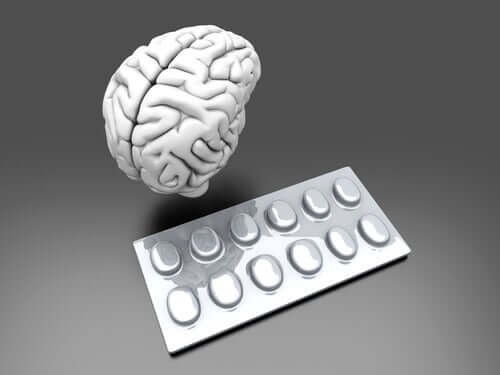An antidepressant acts on the brain generating physiological changes that result in improved mood, these changes are induced by the chemical action of the drug and have a limited duration, in addition to generating a number of side effects that have not yet been fully understood.
Depression is almost an epidemic in the world, reported cases increase year after year and many undiagnosed cases are known to be reported, i. e. not everyone with this disorder goes to the doctor, what we do know is that the use of depression medications increase every year worldwide, so it is very important to know how the antidepressant works in the brain.
- It is important to say that this medicine is not the only way to treat the problem.
- An antidepressant acts on the brain moderating the symptoms of the disorder.
- But does not eliminate them.
- That is.
- It causes the disease to enter a dormant state.
- State.
- But it doesn’t end.
- As a result.
- There are treatments that focus exclusively on the psychological.
- There are also alternative interventions.
- Such as those proposed by psychoanalysis or meditation.
“The price for getting out of depression is humility?-Bert Hellinger-
Talking about antidepressants is talking about a wide range of drugs, we basically have conventional tricyclic antidepressants, selective serotonin reuptake inhibitors (SSRS) and selective serotonin and norepinephrine reuptake inhibitors (SSRS).
Let’s see how each type works in more detail:
According to most scientists, antidepressants do not generate physical dependence, but they can lead to psychological dependence. There are several studies in which a very harmful effect of this type of drug has been tested, especially when they have been used for more than five years.
A responsible psychiatrist uses drugs only as a temporary aid, not as a condition that the patient has to depend on for the rest of his life.
Although an antidepressant helps restore brain balance, generating and maintaining relative mood stability, it does not completely solve the central problem. Yes, depression can be overcome, but this can’t be achieved with medication alone. Conventional treatment of this type of disorder requires Pharmacological intervention combined with psychotherapy. It is these two factors that together offer a way out of the situation.
The remedy is a momentary aid. It is used to moderate symptoms and make therapeutic work possible. Humans are not only a biological body, they are also symbolic beings.
This means that neurotransmitters condition our mood, but it also influences the way we interpret experiences and make sense of them. No medicine makes sense of our lives. This is only possible through processes that allow you to reinterpret and build new meanings.
If we look at it from a psychoanalytic point of view, depression is not a clinical entity in itself. It would actually be a way to get before reality. Jacques Lacan spoke of depression as a manifestation of “moral cowardice. “the effect of “giving in to desire,” that is, not reaffirming being. The person is not fully responsible for his own life and his actions. By not doing so, he becomes depressed.
From the point of view of Eastern philosophies, depression is the result of excessive attachment, the emphasis of life is on something external, on which it depends, this dependence, in turn, leads to fear and denial of the ephemeral. possible explanations of depression.
Some studies indicate that psychotherapies, psychoanalysis and meditation can produce effects similar to those provided by the drug. The action of an antidepressant in the brain is almost immediate and also short-lived.
Psychotherapy requires more effort on the part of the patient and the results are slower, however, on the other hand, they are more persistent, have no side effects and return control of the patient over their life treating the root of the problem, not just their symptoms.

